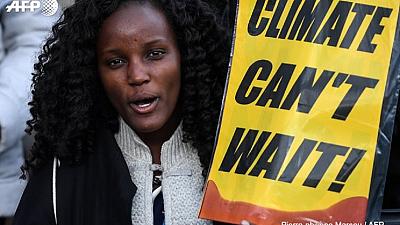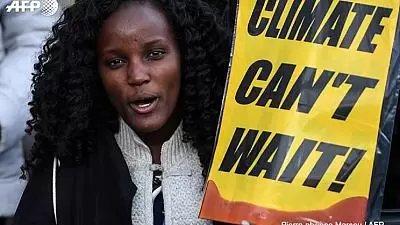

Last updated on September 11th, 2021 at 03:09 pm
Nations failed to agreed on a way forward in collectively dealing with climate change and global warming at a UN climate summit in Madrid.
The delegates stumbled towards the finish line Sunday after marathon talks between countries exposed deeper divides than ever over how to enact humanity’s plan to avert global warming disaster.More than 36 hours after the negotiations were due to end, delegates were close to agreement on contentious issues, including how ambitious each nation is in its individual plan to fight climate change.
Faced with fire-alarm warnings from science, deadly extreme weather made worse by climate change, and weekly strikes by millions of young people, negotiations in Madrid were under pressure to send a clear signal that governments were willing to double down in tackling the crisis.
“ COP 25 has failed us and it’s another year of failure. ”
But observers and delegates from nations already bearing the brunt of climate-related disasters said the COP 25 in Madrid had resolutely failed to live up to its own slogan: Time for action.
“We wanted provisions that were in the Paris agreement to remain and what we see at every
COP it just seems to be another opportunity to erode those,” Grenada envoy Simon Stiell told AFP.
“There are one or two parties that seem hell bent on ensuring any calls for ambition, action, environmental integrity are rolled back,” he added.
Evidence of extreme weather change
Delegates from nearly 200 nations are in Madrid to finalise the rulebook for the 2015 Paris agreement, which aims to limit global temperature rises to well below two degrees Celsius (3.6 Fahrenheit).
The accord enters in to action next year, and it had been hoped COP 25 would show the world that governments had listened to the weekly protests, irrefutable science and more extreme weather events to redouble their efforts.
Yet the key issue of ambition — how far each country is willing to slash carbon emissions or assist less wealthy peers to do likewise — has largely failed to materialise.
Veteran observers of UN climate talks were stunned by the state of play.
And youth activists, who held several protests during the summit, called out governments dragging their feet.
Alexandria Villasenor, a 14-year-old climate activist, said she was “disappointed” in the lack of action at COP 25.
“The difference between the youth on the streets and the negotiations is that the youth on the streets are acting with urgency,” she told AFP.
“COP 25 has failed us and it’s another year of failure.”
Seeking more support
The push for a strengthening of voluntary carbon cutting plans is led by small-island and least-developed states, along with the European Union.
These have called out nations they see as blocking consensus for all countries to step up, notably the United States, Australia and Saudi Arabia.
China and India, the world’s No. 1 and No. 4 carbon emitters, have made it clear they see no need to improve on their current emissions reduction plans, which run to 2030.
These emerging giants have chosen instead to emphasise the historical responsibility of rich nations to lead the way and provide financing to poor countries.
“It seems like it’s inching along but it’s not the strong call for climate ambition that we needed to come out of this,” said Catherine Abreu, executive director of Climate Action Network Canada.
“It will be a pretty mediocre outcome.”
The COP 25 summit was also meant to finalise a chapter on carbon markets in the Paris rulebook.
Some nations, notably Brazil and Australia, want to count carbon credits accumulated under a previous climate deal as part of their commitments under the Paris goals.
Discussions over markets were at an impasse Sunday and the issue is likely to be handed over to next year’s COP 26 in Glasgow.
Americans lack of good will
The US, which is leaving the Paris deal next year, was accused of playing spoiler on a number of issues vital to climate-vulnerable nations.
This included so-called “loss and damage” funding to help disaster-hit countries repair and rebuild.
“The US has not come here in good faith,” said Harjeet Singh, climate lead with charity ActionAid.
“They continue to block the world’s efforts to help people whose lives have been turned upside down by climate change.”
Even if nations in Madrid snatch victory from the jaws of defeat and agree to implement their pledges on paper, Earth is on course to warm more than 3C by 2100.
The U.S.-based driver training company Zutobi analyzed road safety worldwide and found South Africa stays last in driving danger since…
The Basketball Africa League (BAL) returns for its 2025 season with exciting changes and developments. Since 2019 the NBA-linked basketball…
The Somali president supports their military forces to eliminate the threats from Al-Shabaab, ISIS, and Al-Qaeda. The Somali National Army…
UAE President Sheikh Mohamed bin Zayed Al Nahyan held talks with President Faustin Archange Touadéra of the Central African Republic…
African football teams struggle intensely in the World Cup Qualification rounds to earn their place on the international football stage.…
The journey toward the 2026 FIFA World Cup is rapidly intensifying for all African teams, who now hold a historical…
This website uses cookies.